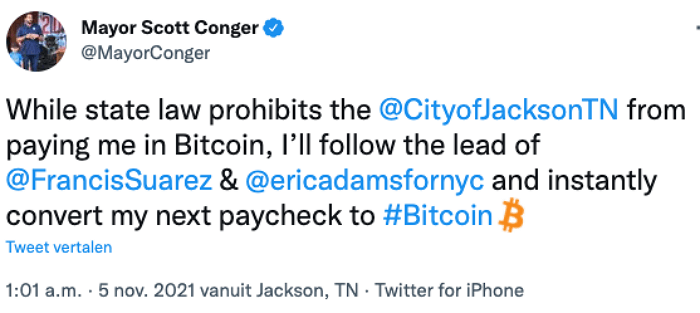Weekly Market Review & Analysis For November 1, 2021

Every primary market index set intraday and closing records this week. The small-cap Russell 2000 index gained 6.1%, but none rose more than the Russell 2000. The Nasdaq Composite rose 3.1%, and the S&P 500 rose 2.0%. Meanwhile, the Dow Jones Industrial Average rose 1.4%.
Animal market spirits were at full force. They were supported by not only a sentimental fear of losing out on future gains but also by fundamental factors.
- Fed Chair Powell stated that the central bank does not plan to increase rates immediately after the FOMC announced plans for asset purchases of $15 billion - The Central Bank is not traditionally supposed to regulate the market economy by setting interest rates - only adjust rates. It doesn't say anywhere that they can OWN and control America. As you can see, that is precisely what is happening. The Federal debt is on the rise, and it's astounding! Also, so does the Fed's balance sheet. The Fed controls America by jiggering many activities.
- The October employment report showed 531,000 nonfarm payrolls added and a 4.6% unemployment rate.
- Interest rates fell noticeably in the face of tempered inflation expectations and rate hikes. Powell, Fed Chair, stated that inflation should not be a problem by the second quarter or third quarter of 2022.
- Pfizer (PFE), which claims its COVID-19 oral antiviral decreased the risk of death or hospitalization by 89%, said interim data.
- Pleasing market earnings news from various companies, including Qualcomm, which managed a 12% increase in NVIDIA's within one trading session.
Nine of the eleven S&P 500 market sectors ended the week with gains. Consumer discretionary with +5.0% professed the first place, followed by increases of 3.3% in information technology and materials with +3.2%. Two sectors that closed lower were financials posting -0.6% and health care print of -0.7%.
Avis Budget was up by as much as 218% within an hour and a half of trading, which was a dramatic short squeeze after the company beat earnings expectations. Although the stock lost half of its gains, this wild move was a testament to the bullish market spirit.
Recognizing the movements in the U.S. Treasury market, the Two-yr yield sank ten basis points to close at 0.39%, and Ten-year yields fell eleven basis points to close at 1.45%.
This week, there was more central bank action. The central bank of Poland raised rates by 75 basis points to 1.25% on Wednesday. Thursday saw the Czech Republic rate rise 125 basis points to settle at 2.75%.
However, the Bank of England (BOE) surprised the markets by not raising interest rates this week. However, BOE and Bank of Canada (BOC) have indicated that they expect rate hikes to occur sooner than expected.
The European Central Bank (ECB), which kept rates at the same level, reiterated its commitment to quantitative easing to support the economy and keep rates low.
News and rumors claiming hedge funds are losing money on wrong-way bets about the direction interest rates will move also impact stock prices at megabanks. Through their prime brokers, megabanks finance highly-leveraged trading of hedge funds.
Market action elsewhere
Market data indicates that the French and Italian economies expanded by 2.6% and 3%, respectively, in the third quarter. Both are stronger than market expectations. Germany's 1.8% growth in economic activity was slower than expected due to supply shortages.
Stoxx Europe 600 finished the week with a slight increase. Record high defaults by Chinese borrowers of off-shore bonds rose to new heights. Modern Land China is the latest borrower to default. This is yet another sign of the continuing difficulties of investing in China's real estate sector.
The Shanghai Composite Index fell 1% over the week. This was due to an 11.5% drop in the real estate sector market.
Commodities
Although commodity prices are on a steady upward trend - the Commodity Research Bureau (CRB) Index has increased almost 40% over the past year - the silver and gold market has remained in a narrow range. Equity Management Associates' Lawrence Lepard, a member of Equity Management Associates, was recently asked why precious metals are the only commodities the inflation bug hasn't bitten.
The highly respected fund manager said that the metals were "early to the party" and are now taking a break while the rest of the commodities catch up. In two years, gold was up more than 50%. The past year has seen a 15% drop in gold prices. This is insane, partly because of price suppression by central banks. However, in his view, they can't hold it down forever, and it will reach new all-time highs quickly.
West Texas Intermediate (WTI) crude oil futures fell under $80 per barrel after OPEC+ decided to keep December's production schedule. Although crude oil prices rebounded on Friday, they ended the week closing lower at $81.25/bbl.
Cryptocurrency market
What's up, Ethereum? Scarcity leads to all-time high Ethereum. You've probably already heard of the launch of bitcoin ETF's in the States. Many investors think the next step will be a tradable market fund based on Ethereum futures. This ensures a lot of excitement from institutional investors.
But there's more: last Wednesday, the long-awaited upgrade Altair was implemented with a hard fork. Almost all nodes have complied. There's also the case for a supply squeeze on exchanges. The total supply of ethers on exchanges is at its lowest point in two years. This suggests that almost nobody is willing to sell their coins which lead to buyers paying a premium.
For the first time in the history of Ethereum, more ethers have been burned than mined every week. This negative issuance of -59 is positive for investors because it creates even more scarcity.
So how does this work? A small portion of the gas fee is burned (taken out of circulation). If Ethereum gains more traction, more fees will be paid, and more coins will be taken out of circulation.
This conversation took place on Twitter Thursday:
Miami Mayor: my next paycheck is in bitcoin
New York Mayor: my next three paychecks will be in bitcoin
Miami Mayor: my next 12 paychecks will be in bitcoin
This friendly banter happened between a Democrat and a Republican, two political parties that let the world explode rather than work together. But bitcoin transcends political party lines. We live in a world where politicians, the richest man in the world, entertainers, and you and I share a common interest: Bitcoin.
Game theory and social media
What happens if you combine game theory with social media? Conversations like the one above. Not long after they ended, game theory started working again. Below is a tweet from the mayor of the City of Jackson; he reacted by saying he wants to join the bitcoin party.

It's only a matter of time before politicians are forced to agree on a bitcoin salary if they want to have votes from the next generations.